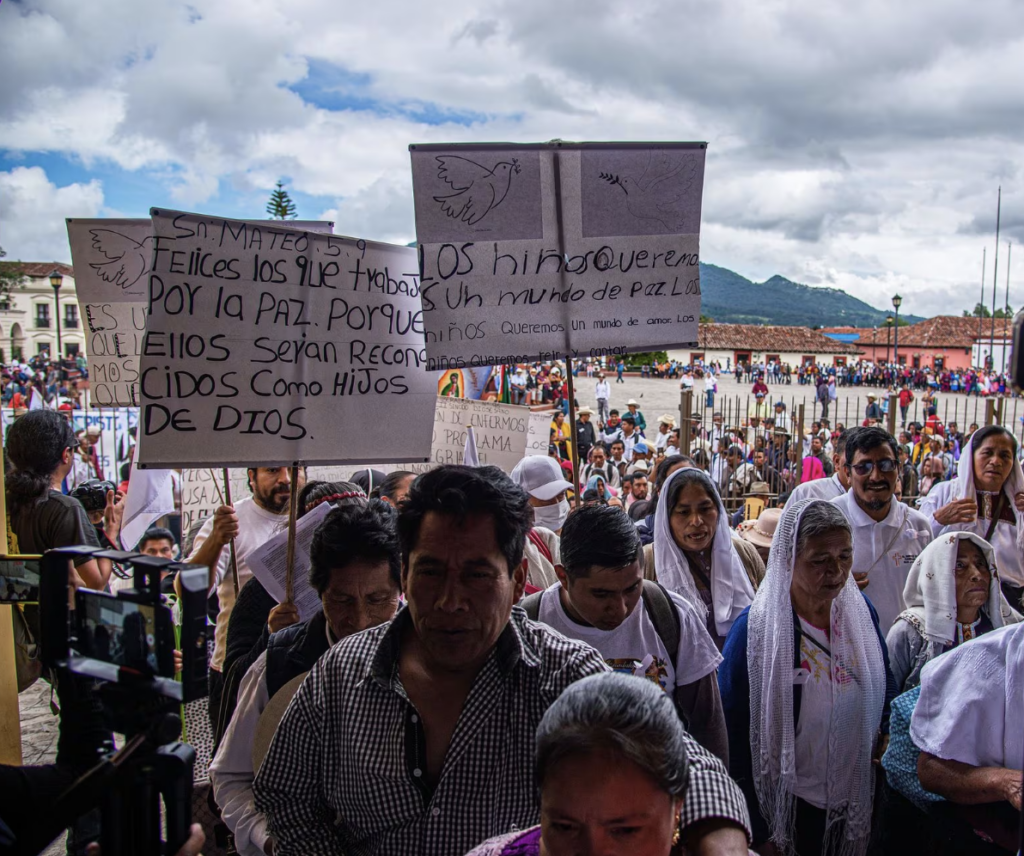With casualties of the drug war in Mexico in 2009 likely to surpass last year’s total, and allegations of human rights abuses gaining increasing national and international attention, Pres. Calderón’s strategy of employing the military to undertake law enforcement duties is coming under increasing criticism from Mexican and U.S. lawmakers.
In early August, Sen. Patrick Leahy (D-Vt.), chairman of the Senate Appropriations foreign operations subcommittee, blocked the release of a State Department report affirming that the Mexican government is adhering to human rights standards in its campaign against drug cartels. Leahy said that the report contradicts credible claims of abuses by the military, which are steadily on the rise. Leahy’s move blocks the release of US$100 million of the Merida Initiative, a 3-year, US$1.4 billion aid package to Mexico for helicopters, surveillance equipment, training, and information gathering technology. Legislation passed by the U.S. Congress in 2008 stipulates that 15 percent of the funds are contingent on periodic State Department reports to Congress that Mexico is making progress in four areas: transparency and accountability; improving communication with civil institutions; investigating and prosecuting alleged human rights abuses via civilian channels; and barring the use of testimony obtained through torture. Particularly at issue is the matter of Mexico’s use of its military justice system to investigate alleged human rights abuses by soldiers, deemed by prominent human rights organizations and some members of the U.S. Congress to be ineffective and lacking in transparency. In recent months, Amnesty International has been particularly outspoken in demanding that the U.S. Congress not release the Meridia funds in question so as to not encourage further impunity.
Leahy’s move came less than a week before Pres. Obama visited with Pres. Calderón and Canada’s Prime Minister Stephen Harper in Guadalajara to discuss a broad swath of issues, including trade, immigration, swine flu, and border security. At the so-called “Three Amigos Summit,” Pres. Obama praised Pres. Calderón’s efforts to combat drug trafficking, saying that he was confident that human rights are being respected in Mexico and that the nation is working toward building strong state institutions. For his part, Pres. Calderón reiterated his administration’s commitment to human rights – not for foreign aid that might come as a result or to please U.S. Congress members, but because he has a “profound conviction for human rights.” The blockage of the Merida Initiative funds and the suggestion of future such actions by the U.S. Congress, however, present a challenge to the professed partnership between the United States and Mexico in addressing the shared problem of drug trafficking.
Meanwhile, Pres. Calderón’s drug control strategy has come under increasing attacks from lawmakers in his own country, particularly from the Institutional Revolutionary Party (PRI), which prevailed in last month’s elections, overtaking Pres. Calderón’s National Action Party as the leading party in the Chamber of Deputies. PRI Sen. Manlio Fabio Beltrones called for the Calderón administration to set a timeline for the removal of soldiers from law enforcement functions. Following revelations from military commanders in Michoacán that they did not receive instruction from the federal government to coordinate operations with Michoacán Gov. Leonel Godoy, PRD Sen. Graco Ramírez presented a memorandum on behalf of members of his party in the Senate and Chamber of Deputies demanding that Calderón adhere to the national public security law in ensuring that the operations against organized crime are coordinated between federal and state authorities.
Meanwhile, experts on both sides of the border are projecting a protracted battle. At a border security conference at the University of Texas El Paso, the Homeland Security Department’s “border czar” Alan Bersin compared Mexico’s fight with drug cartels to the generation-long mafia wars in the United States beginning in the 1920s in that the cartels’ scope of influence poses a real risk to Mexico’s future prosperity. Bersin said that Mexico has “begun the journey” of dispelling the cartels, and that he supports continued U.S. support. However, Howard Campbell, a UTEP sociology and anthropology professor, said that Merida funds are misdirected, and would be better spent on education and treatment programs in the United States. Nevertheless, the Calderón and Obama administrations have shown no intention of changing course. Mexico’s Interior Minister Fernando Gómez Mont said during an interview that the administration is “committed to enduring this wave of violence,” and pointed out that detractors have not offered an acceptable alternative.
From the Justice in Mexico Project’s August Monthly News Report:
http://www.justiceinmexico.org/news/recent_news.php
SOURCE:
Becerril, A. and V. Ballinas. “Urge retirar el Ejército de las calles, insisten PRD y PRI.” La Jornada July 23, 2009.
Herrera, Beltrán, Claudia. “Constitutional y democrática, la lucha contra la delincuencia, afirma Calderón.” La Jornada July 24, 2009.
Booth, William and Steve Fainaru. “Mexico urged to change drug war strategy.” Washington Post July 29, 2009.
Téllez, Cecilia. “Obama respalda a FCH sobre derechos humanos.” La Crónica de Hoy August 11, 2009.
Brezosky, Lynn. “Mexico’s drug war compared to fight with mafia.” San Antonio Express August 11, 2009.




